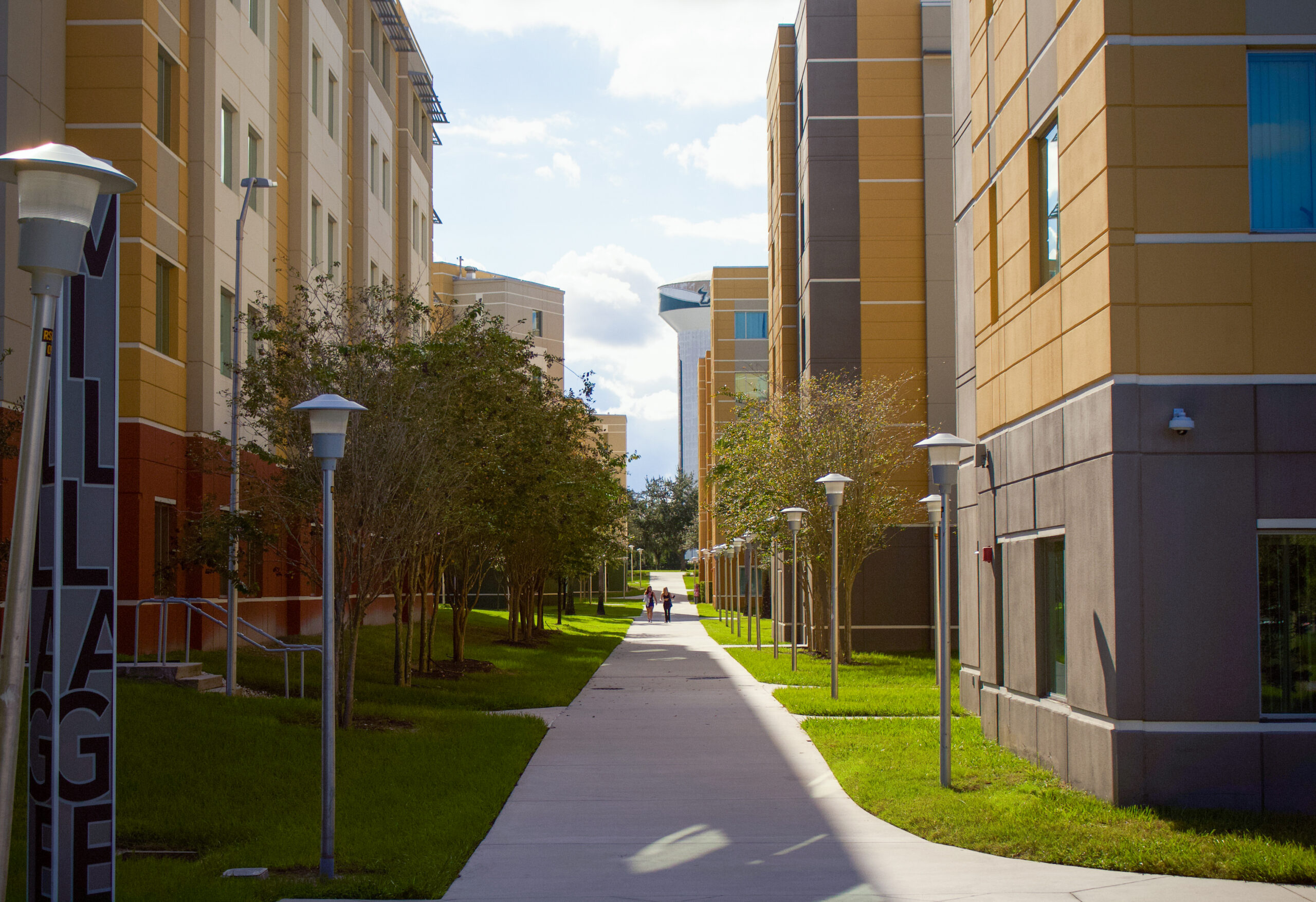OPINION: Bulls don’t have school spirit. Or rent money.

A roaring stadium of rowdy fans, fascinating lectures packed to the brim with eager young minds and lively homecoming events: a picture of the campus experience many students look forward to coming into college. This does not paint a picture of USF.
Its football game attendance is mediocre at best; ranked 71st in the FBS. The Campus Activities Board cut the University Lecture Series to one per semester due to low attendance, and this year’s homecoming concert had under 1600 pre-registrants for the over 10,000-seat event.
USF can’t begin to build a thriving college culture until students can afford to live there without struggling. The institution must build more accessible, affordable housing for students to actually engage on campus.
Related: OPINION: The Ivy’s ‘unlivable’ conditions are a trend in off-campus housing.
Despite its tuition rate being 45% lower than the national in-state average of $11,560 and 37% lower than the national out-of-state average of $17,234, many students are struggling to afford life at USF. This is largely due to cost-of-living expenses like housing and meals.
This has contributed to USF’s Feed-A-Bull food pantry seeing 1,000 visits in the first four weeks of the fall semester, compared to 4,770 total visits in the entirety of the previous school year.
Dorm rates currently range from $6,140 to $8,176 annually, and are set to increase an average of 4.5% annually for the next five years.
Related: Dorm housing rates set to increase beginning this fall
Many students find these prices unsustainable. Of 103 USF students surveyed, 88% said they found dorm prices unreasonable in an April poll by The Oracle.
“[Castor] is really the only [dorm] I can afford. So with my job, I’d have to get this one. But I’m not living on campus next year because of rising rates, so I wouldn’t be able to afford it,” USF freshman and Castor resident Riley Crosby said.
In addition to pricing issues, increased demand has created a dorm scarcity that’s pushed many students off campus.
“I kept trying [to get on-campus housing], but nothing opened up. I had to use off-campus housing without a car, which was [very] damaging financially and for my mental/physical health,” behavioral healthcare sophomore Rana Ali said.
When it comes to affordability, off-campus housing is not an improvement. The average rent for an apartment in Temple Terrace is currently $1,610 a month. Even third-party student housing complexes, which are known for undesirable conditions, have been increasing their prices to match the market. One of the cheapest off-campus housing options, ON50, raised its rates in 2022 to $8,160 annually.
The lack of affordable housing pushes many students away from activities that would add to a classic college culture.
Of those surveyed, 80% of USF students reported that their housing is at least partially paid for by job income, and 27% reported taking up a job specifically to pay for housing.
About half of working students surveyed by Inside Higher End spend no time on extracurriculars, meaning that Bulls forced by housing prices to get a job are significantly less likely to interact on campus at all outside of class.
For Florida locals who opt to commute rather than spend the money on housing, research shows that commuter students experience less social integration with their peers and are significantly less likely to engage on campus.
Before USF can have an active culture of its own, the university needs to build more accessible, affordable housing.
This would ideally be on-campus, but between the on-campus stadium, new football practice facility and Honors College building, USF Tampa is getting crowded fast. If there’s no space to build on campus, USF could follow the lead of other universities and partner with developers to create subsidized off-campus options that are affordable but still close to campus.
If USF wants students to partake in campus life, they need to be able to keep their heads above water first.








